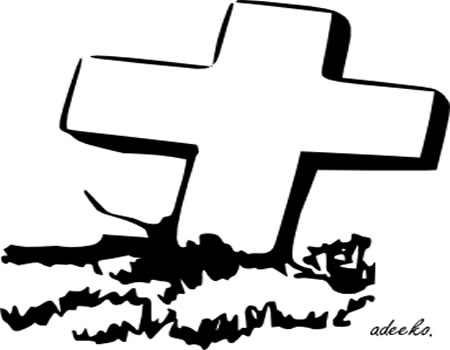
THE death of a resident medical doctor with the University of Benin Teaching Hospital (UBTH) this week shocked many Nigerians. Dr. Okeoghene Edigba, according to reports, died after performing four straight surgeries. During the surgeries, Edigba was said to have slumped. He was thereafter confirmed dead by his colleagues after being rushed to the hospital’s emergency ward.
The death of the surgeon has brought into bold relief the travails of workers, in particular medical personnel, in many of Nigeria’s public hospitals. The unfortunate scenario that confronts many of them is that there are too many jobs that are chasing very negligibly few personnel. It is no longer news that many Nigerian hospitals operate with very few doctors, many of whom have to work at breakneck speed and under extremely difficult conditions. They attend to the health needs of hundreds of patients at a stretch.
Even without a deeper peep into the condition of the late medical doctor before he met his unfortunate and untimely death, it is obvious that his death is a throwback to and a reflection of the parlous state of human power and resources in Nigeria’s public hospitals. This has been the major affliction of Nigeria’s public health sector and it has deteriorated over the years. Even though many doctors graduate from Nigeria’s medical schools on a yearly basis, many of such graduates get disillusioned by the conditions of service and the parlous equipment they have to work with. In this kind of situation, these doctors take the easiest routes out of the system and are willing recruits of the Nigerian situation of brain drain where medical institutions easily take them away from Nigeria’s inveterate system.
Dr. Edigba apparently died because he wanted to do more than his health capacity could carry him, having seen the avalanche of cases needing his attention. No genuine doctor who sees patients in very critical conditions before him would want to abandon them to their fate. This was no doubt the case of Dr. Edigba. In the process of displaying his humanity in helping people who needed his attention, he apparently didn’t realise that he had reached the elastic limit of his health capability. Certainly, the management of the country’s hospitals, especially public hospitals, needs to embark on massive recruitment of medical personnel so as to avoid the huge workloads that could lead to exhaustion and death of their personnel.
The death of the doctor is also an attestation to the fact that health caregivers may need to be more attentive to their own health. Physicians should direct attention to their own health as well because they need to live, just like their patients. Dr. Edigba’s death shows clearly that there could be hundreds of health caregivers who also need urgent medical attention but who belittle this urgency because they are used to the everyday intervention they make to patients and thus underrate their own state of health.
We salute the fidelity to the Hippocratic Oath which Dr. Edigba demonstrated even to the point of death. We call for state recognition of the contributions of this selfless medical doctor who paid the ultimate price, apparently in deference to the human person. We commiserate with his family and staff of UBTH. May his soul rest in sweet repose.
END

Be the first to comment